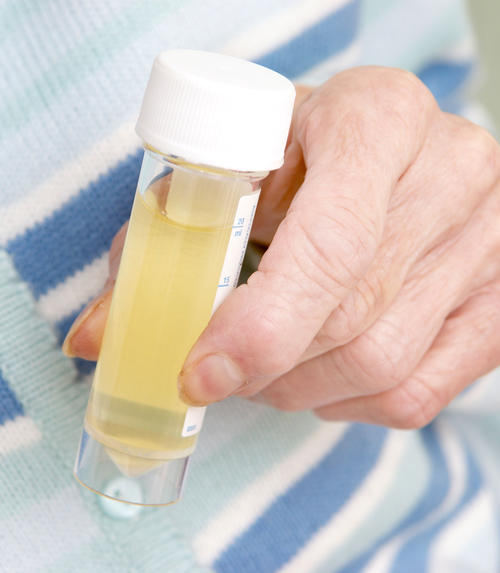Urine tests
Key facts
- Urine tests are commonly used in health check-ups.
- Different types of urine tests look for and test for different things.
- Urine samples are collected in different ways depending on the type of test.
- It's important to follow the instructions for collecting your urine sample.
What are urine tests?
Urine tests can give your doctor or nurse useful information about your general health. They can also help find health issues early.
Sometimes, the colour and smell of your urine can give your doctor clues about why you are feeling sick.
What are urine tests used for?
Urine can be tested for many different reasons. You might be asked to take a urine test to:
- confirm a pregnancy
- see if you have an infection, such as a urinary tract infection (UTI)
- help diagnose or monitor conditions such as diabetes, bladder cancer or sexually transmitted infections (STIs)
- check if your kidneys are working properly
- look for blood in your urine
- check for recreational drug use — for example during workplace screening or in a rehabilitation program
You can buy urinary tract infection testing kits at your pharmacy. These are not as accurate as the tests sent to a laboratory. It's important to see your doctor for diagnosis and treatment.
FIND A HEALTH SERVICE — The Service Finder can help you find doctors, pharmacies, hospitals and other health services.
What is a urine dipstick test?
A urine dipstick test gives fast results. Your doctor or nurse can do the test during a regular visit. You won't need to wait for results to come back from a testing laboratory.
Your doctor or nurse dips a small stick with coloured patches into your urine. The patches change colour depending on what's in your urine.
Dipstick tests can be used for many different health issues, including diabetes. If you have diabetes, the test can show if there are proteins or ketones in your urine.
Urine pregnancy test
Urine pregnancy tests can be bought from a chemist for home use. They can also be done by a doctor or nurse. Tests done in a laboratory are more accurate than home test kits.
Pregnancy tests check for a hormone called human chorionic gonadotropin (hCG). This hormone is made by the placenta. It is only made by the body during pregnancy.
A urine test can detect hCG in your urine from about 7 to 10 days after fertilisation. Most tests can detect it on the first day that your period is due.
Urinary drug test
Urine can be tested for drugs. Simple tests can be done:
- at home
- in a sports setting
- at your workplace
- More complicated tests are sent to a laboratory.
Common drugs tested include:
Urine tests for sexually transmitted infections
Urine can also be tested for sexually transmitted infections (STIs). These tests are sent to a laboratory. It usually takes a few days to get the results.
They can help find infections such as chlamydia or gonorrhoea. Everyone can be tested for STIs.
How do I take a urine sample?
You'll need to urinate (wee) into a special plastic jar. It's important to collect the urine correctly and store the jar properly. This helps make sure the test results are correct.
Follow these steps:
- Clean your genital area before taking the sample.
- Don't let the container touch your genitals when collecting the urine.
- You are usually asked to take the sample from the middle of the urine stream. Pass a small amount of urine into the toilet first, then collect the next part in the jar.
- Some tests may need the urine from the start of the stream. This can include pregnancy tests.
- Tell your doctor or nurse about any medicines or drugs you take. These might affect your test results.

Your doctor may ask for a 24-hour urine collection test. This helps check how your kidneys are working. You'll be given a clean plastic container to collect all your urine over one day.
ASK YOUR DOCTOR — Preparing for an appointment? Use the Question Builder for general tips on what to ask your GP or specialist.
Resources and support
- Jean Hailes has a factsheet on UTIs and urine samples.
- Queensland Health offers information on a midstream urine test.
- Government of Western Australia offers information about urine drug screening.
You can also call the healthdirect helpline on 1800 022 222 (known as NURSE-ON-CALL in Victoria). A registered nurse is available to speak with you 24 hours a day, 7 days a week.
Languages other than English
- PathWest has information on how to collect your midstream urine sample in several community languages.
- Health Translations has instructions on how to collect samples for STI testing in a range of community languages.
Information for Aboriginal and/or Torres Strait Islander peoples
- Find an Aboriginal Community Controlled Health Organisation (ACCHO) or Affiliate near you.
Learn more here about the development and quality assurance of healthdirect content.
Last reviewed: July 2025










